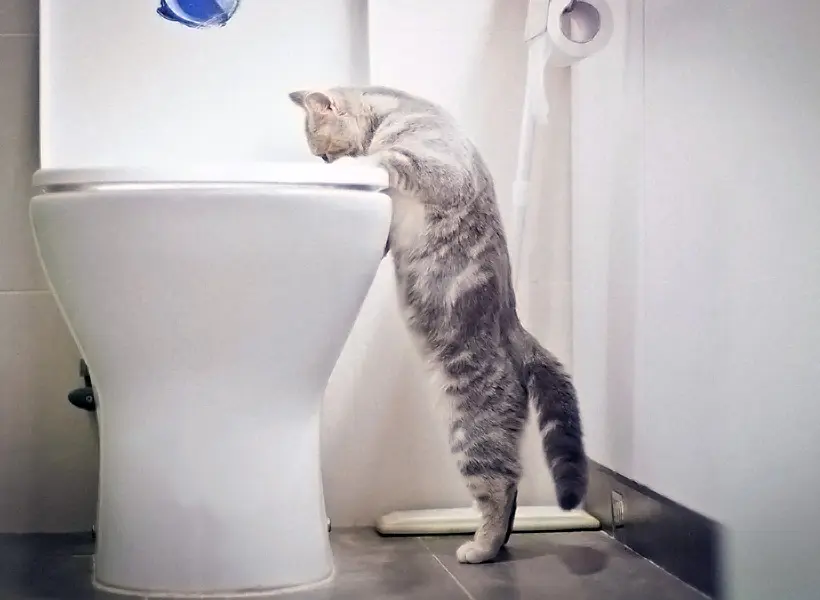Reasons You Should Never Flush Cat Poop Down Your Toilet - Crucial Information
Reasons You Should Never Flush Cat Poop Down Your Toilet - Crucial Information
Blog Article
What're your beliefs on How to Dispose of Cat Poop and Litter Without Plastic Bags?

Intro
As pet cat proprietors, it's important to bear in mind how we get rid of our feline friends' waste. While it may seem hassle-free to purge feline poop down the toilet, this technique can have damaging repercussions for both the environment and human wellness.
Ecological Impact
Flushing pet cat poop introduces hazardous virus and parasites right into the water supply, posturing a considerable threat to aquatic environments. These contaminants can adversely impact marine life and compromise water high quality.
Wellness Risks
Along with environmental issues, flushing cat waste can additionally posture wellness dangers to people. Pet cat feces may include Toxoplasma gondii, a bloodsucker that can trigger toxoplasmosis-- a potentially extreme health problem, especially for expectant ladies and individuals with weakened body immune systems.
Alternatives to Flushing
Thankfully, there are safer and a lot more accountable methods to deal with pet cat poop. Consider the adhering to alternatives:
1. Scoop and Dispose in Trash
One of the most usual method of disposing of feline poop is to scoop it right into an eco-friendly bag and toss it in the trash. Be sure to use a committed litter scoop and get rid of the waste immediately.
2. Usage Biodegradable Litter
Select naturally degradable feline trash made from materials such as corn or wheat. These litters are environmentally friendly and can be securely disposed of in the trash.
3. Bury in the Yard
If you have a backyard, take into consideration burying cat waste in an assigned area far from veggie yards and water resources. Make certain to dig deep adequate to stop contamination of groundwater.
4. Install a Pet Waste Disposal System
Purchase an animal garbage disposal system especially made for pet cat waste. These systems use enzymes to break down the waste, reducing odor and ecological effect.
Conclusion
Accountable animal ownership prolongs past providing food and shelter-- it also includes appropriate waste monitoring. By refraining from purging feline poop down the bathroom and choosing alternate disposal methods, we can minimize our ecological footprint and protect human wellness.
Why You Should Never Flush Cat Poop Down the Toilet
A rose by any other name might smell as sweet, but not all poop is created equal. Toilets, and our sewage systems, are designed for human excrement, not animal waste. It might seem like it couldn’t hurt to toss cat feces into the loo, but it’s not a good idea to flush cat poop in the toilet.
First and foremost, assuming your cat uses a litter box, any waste is going to have litter on it. And even the smallest amount of litter can wreak havoc on plumbing.
Over time, small amounts build up, filling up your septic system. Most litter sold today is clumping; it is made from a type of clay that hardens when it gets wet. Ever tried to scrape old clumps from the bottom of a litter box? You know just how cement-hard it can get!
Now imagine just a small clump of that stuck in your pipes. A simple de-clogger like Drano isn’t going to cut it. And that means it’s going to cost you big time to fix it.
Parasitic Contamination
Believe it or not, your healthy kitty may be harboring a nasty parasite. Only cats excrete Toxoplasma in their feces. Yet it rarely causes serious health issues in the cats that are infected. Most people will be fine too if infected. Only pregnant women and people with compromised immune systems are at risk. (If you’ve ever heard how women who are expecting are excused from litter cleaning duty, Toxoplasma is why.)
But other animals may have a problem if infected with the parasite. And human water treatment systems aren’t designed to handle it. As a result, the systems don’t remove the parasite before discharging wastewater into local waterways. Fish, shellfish, and other marine life — otters in particular — are susceptible to toxoplasma. If exposed, most will end up with brain damage and many will die.
Depending on the species of fish, they may end up on someone’s fish hook and, ultimately on someone’s dinner plate. If that someone has a chronic illness, they’re at risk.
Skip the Toilet Training
We know there are folks out there who like to toilet train their cats. And we give them props, it takes a lot of work. But thanks to the toxoplasma, it’s not a good idea.

As an avid reader on How to Dispose of Cat Poop and Litter Without Plastic Bags, I imagined sharing that article post was a smart idea. Sharing is nice. Helping people is fun. Thank you for your time. Come back soon.
Contact Report this page